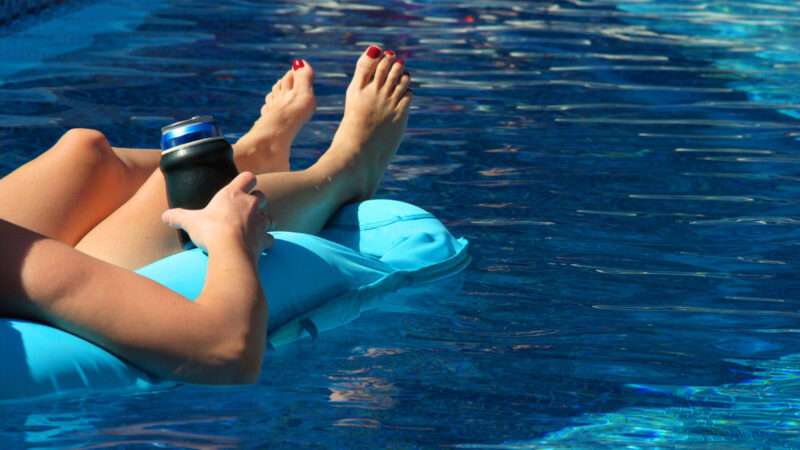
Tariffs aren't merely making summer fun more expensive—they are also making it potentially more dangerous too.
"Life Saver is not a misnomer," writes Neil Mooney, an attorney representing Life Saver Pool Fence Systems, Inc., in testimony submitted earlier this month to the U.S. International Trade Commission (USITC), which later this week will hold a hearing on the economic impact of the multitude of tariffs imposed by the Trump administration in 2018.
For a company like Life Saver, which manufactures fencing meant to keep children away from unsupervised pools where they might accidentally drown, the tariffs have hiked the cost of raw materials imported from China. In his written testimony, Mooney estimates that the company has paid about $1.2 million in tariffs over the past four years—and has twice had to raise prices "specifically because of the tariffs."
"The imposition of the Section 301 tariffs has forced Life Saver to raise its prices which inevitably has led to lower sales volume and therefore fewer protected pools," writes Mooney. "The economic impact of the Section 301 tariffs is not only felt by Life Saver and other similar businesses and their employees, but also by the end consumers—American families."
Are higher taxes on Chinese-made imports worth leaving American children marginally less safe?
Apparently so, at least for the past two presidential administrations. Former President Donald Trump used Section 301 of the Trade Expansion Act of 1974 to impose tariffs on a wide range of goods imported from China in several phases during 2018 and 2019. As a result, the average tariff rate applied to goods from China effectively doubled. Cumulatively, Americans have paid about $136 billion in higher costs as a result of those import taxes—that's about $1,000 per household, according to research by the National Taxpayers Union, a nonprofit that opposes the tariffs.
Tariffs are adding to inflation, too. A study by the Peterson Institute for International Economics, a trade-focused think tank, found that repealing tariffs could reduce overall inflation by about 1 percentage point. Despite that, the Biden administration has so far been unwilling to do more than talk about repealing the tariffs imposed by Trump.
Perhaps this week's hearing in front of the USITC will make the case for a new trade strategy. On Thursday, business owners and industry lobbyists will have a chance to spell out how the tariffs have resulted in slower growth and higher consumer prices. Later this year, the commission is expected to publish a report that could help guide American trade policy in the future (though it's worth noting that a similar series of hearings in 2018 did nothing to stop the onslaught of tariffs, despite dozens of business owners testifying against them).
Pool fencing is, of course, just one example of a niche product that's been affected by four years of an ineffective trade war. Among other businesses and trade associations set to testify on Thursday are makers of outdoor equipment, sporting goods, and brewers.
Fred Ferguson, a vice president at Vista Outdoor, a Minnesota-based company that manufactures a line of bicycling accessories, including helmets, will tell the commission that the U.S. should "rescind tariffs altogether on protective headwear utilized for safety purposes cyclists and other action sports participants," according to a written statement submitted earlier this month.
Tariffs on pool fencing and bike helmets make about as much sense as the tariffs on personal protective equipment that left American hospitals less prepared, in winter 2020, to combat the COVID-19 pandemic. They're also a useful illustration of how both Trump and Biden trade policies could actively harm Americans in ways that go beyond higher prices.
The post How Tariffs Are Making Summer Fun More Expensive, Less Safe appeared first on Reason.com.







